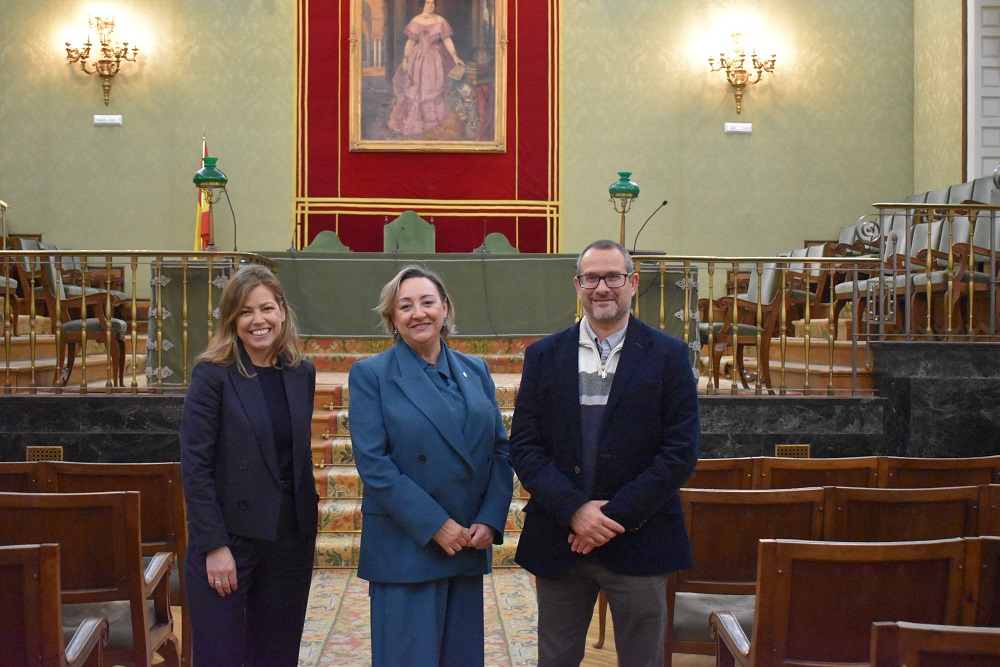Tomàs Marquès Bonet, appointed corresponding member of the Royal Academy of Sciences

The Natural Sciences section of the Royal Academy of Exact, Physical, and Natural Sciences of Spain (RAC) hosted the reception lecture for Tomàs Marquès Bonet as a Corresponding Member this Wednesday. A professor and ICREA researcher at the Department of Medicine and Life Sciences (MELIS) at UPF, principal investigator at IBE and CNAG, Marquès will take charge of the Genomics and Evolution area and joins the institution at the proposal of academics Ana Crespo, Ángela Nieto, and Miguel Delibes. "I have been studying primates for over 20 years," said Tomàs Marquès. "My question is, what can we learn about ourselves as a species by looking at primates molecularly?" "It’s not the perfect method," admits Marquès, "but nowadays we don’t have any other way to answer the questions we ask." The IBE researcher expressed his deep gratitude for the appointment and boldly described it as "probably the greatest milestone of my scientific career."
Academician Ángela Nieto was the one to welcome and praise Tomàs Marquès Bonet, whom she described as "one of the world’s leading experts in his field" and highlighted "his extraordinarily relevant contributions to the understanding of primate evolution." Tomàs Marquès shared the appointment session with scientist María Mittelbrunn, who specializes in the study of the immune system, inflammation, and aging.
The Corresponding Members of the RAC are recognized experts in the fields of exact, physical, natural sciences, or related areas, but they are not part of the core group of the academy (the numerary members). Being appointed as a Corresponding Member is a great honor for any researcher and a sign of scientific recognition. It is an opportunity to contribute to science and academic activity in a meaningful way.
Tomàs Marquès' lecture
Studying the genomes of primates, our closest evolutionary relatives, has become one of the keys to understanding human biology. The analysis of genomes, transcriptomes, and functional data, has enhanced our understanding of a basic question in our biology: what makes us human?
Along the way, we have learned how to use their genetic properties to better understand the consequences of mutations in the human genome and have found new molecular tools to help in their conservation.

Tomàs Marquès. Photo: RAC.
Genomics, Primates, and Human Evolution
Tomàs Marquès Bonet (Barcelona 1975) is the principal investigator at the Institute of Evolutionary Biology (IBE), a joint center of the Spanish National Research Council (CSIC) and Pompeu Fabra University (UPF), where he is head of the Comparative Genomics Group at IBE. He is an ICREA researcher at UPF, a professor at the Department of Medicine and Life Sciences at Pompeu Fabra University, and is also affiliated with the National Center for Genomic Analysis and the Miquel Crusafont Catalan Institute of Paleontology (ICP).
Among the awards and grants he has received throughout his career, he notably received the ERC Starting Grant in 2010 and the Consolidator Grant from the same institution in 2019. In 2011, he was appointed ICREA research professor at UPF; in 2013, he received the EMBO Young Investigator Award, and since 2017, he has been accredited as an international young investigator by the Howard Hughes Medical Institute (HHMI). Additionally, between 2017 and 2020, he served as the director of IBE (CSIC-UPF).
